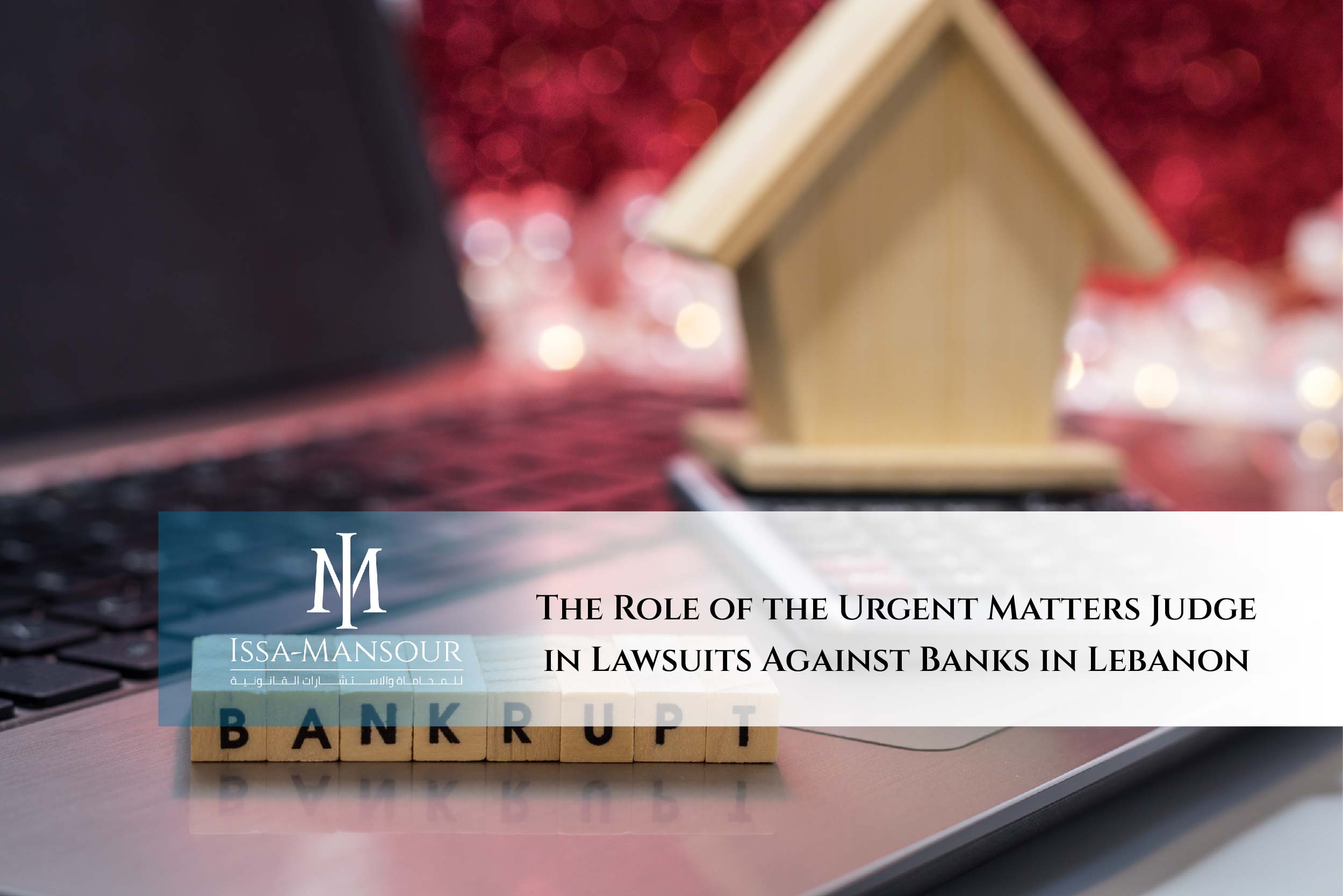The Urgent Matters Judge plays a crucial role in Lebanon’s legal system, particularly in cases that require swift intervention. Governed by Article 579 of the Civil Procedure Code, this judge is responsible for lifting encroachments on rights and issuing urgent rulings—but within strict legal limits.
Over the past few years, hundreds of depositors have turned to the Urgent Matters Court, hoping for a quick resolution to reclaim their frozen bank deposits. However, many have faced dismissal due to the court’s limited jurisdiction. This has led to wasted time, money, and false hopes, often due to misguided legal advice.
Misconceptions About the Role of the Urgent Matters Judge
Many depositors believed the Urgent Matters Court could compel banks to release their funds in cash and foreign currency. However, this falls outside the judge’s authority. The moment a bank raises serious legal arguments regarding its liquidity crisis, contracts, or banking regulations, the judge must recognize the complexity of the case and withdraw jurisdiction, leaving depositors without a ruling in their favor.
This doesn’t mean depositors don’t have legitimate claims—only that they are pursuing them in the wrong venue. The key issue is not whether they have a right to their funds, but how and where to legally enforce that right.
A Smarter Approach to Legal Action
Given the economic crisis and the banks’ inability to secure foreign currency liquidity, depositors must carefully consider their legal strategy. The best approach is to seek advice from experienced lawyers who understand the legal complexities and can guide them toward the appropriate legal channels—whether through civil courts, negotiations, or international legal mechanisms.
Legal battles are about strategy, not speed. Acting in haste can lead to dismissed cases, prolonged disputes, and unnecessary expenses. The right legal path may take time, but with proper guidance, depositors can pursue justice effectively and maximize their chances of success.
دور قاضي الأمور المستعجلة في الدعاوى ضد المصارف في لبنان
يلعب قاضي الأمور المستعجلة دورًا حاسمًا في النظام القانوني اللبناني، لا سيما في القضايا التي تتطلب تدخلاً سريعًا. وبموجب المادة 579 من قانون أصول المحاكمات المدنية، يُكلَّف هذا القاضي برفع التعديات على الحقوق وإصدار القرارات العاجلة، ولكن ضمن حدود قانونية صارمة
خلال السنوات القليلة الماضية، لجأ مئات المودعين إلى قضاء الأمور المستعجلة على أمل الحصول على حل سريع لاستعادة ودائعهم المصرفية المجمدة. إلا أن العديد من هذه القضايا جرى ردها بسبب الاختصاص المحدود لهذا القضاء، مما أدى إلى هدر الوقت والمال وخلق آمال زائفة، غالبًا بسبب استشارات قانونية خاطئة
مفاهيم خاطئة حول دور قاضي الأمور المستعجلة
اعتقد العديد من المودعين أن قاضي الأمور المستعجلة يمكنه إلزام المصارف بإعادة أموالهم نقدًا وبالعملة الأجنبية. إلا أن هذا يتجاوز صلاحياته. فعند إثارة المصارف لمبررات قانونية جدية تتعلق بأزمة السيولة، أو العقود، أو الأنظمة المصرفية، يصبح على القاضي أن يعترف بتعقيد القضية ويتنحى عن النظر فيها، مما يترك المودعين دون حكم لصالحهم
لكن هذا لا يعني أن المودعين لا يملكون حقوقًا مشروعة، بل أنهم يسلكون المسار القانوني الخاطئ. فالمشكلة ليست في أحقية المودعين بأموالهم، بل في كيفية وأين يمكنهم فرض هذا الحق قانونيًا.
نهج أكثر ذكاءً في التحرك القانوني
نظرًا للأزمة الاقتصادية وعدم قدرة المصارف على تأمين السيولة بالعملة الأجنبية، ينبغي على المودعين التفكير بحذر في استراتيجيتهم القانونية. وأفضل نهج هو استشارة محامين ذوي خبرة يدركون التعقيدات القانونية ويمكنهم توجيههم إلى القنوات القانونية المناسبة، سواء عبر المحاكم المدنية، أو المفاوضات، أو الآليات القانونية الدولية
القضايا القانونية تتطلب استراتيجية، لا سرعة. فالتسرع قد يؤدي إلى ردّ الدعاوى، وإطالة النزاعات، وتكبّد نفقات غير ضرورية. وقد يستغرق المسار القانوني الصحيح وقتًا، ولكن من خلال التوجيه المناسب، يمكن للمودعين السعي لتحقيق العدالة بفعالية وتعزيز فرص نجاحهم

